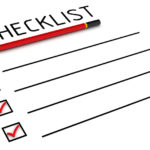
Spend the energy, effort, and time now to consider your wishes, collect information and, most importantly, get everything down on paper, says In Maricopa’s recent article entitled “Make an end-of-life checklist.”
The article says that a list of all your assets and critical personal information in an end of life checklist is a guarantee that nothing is forgotten, missed, or lost. Estate planning attorneys can assist you and guide you through the process. Our firm prepares Estate Planning Binders which include schedules to hold that exact information. As described here https://galligan-law.com/not-a-little-black-book-but-a-big-blue-estate-planning-binder/ Especially in the age of computers, it’s critical to leave this information for fiduciaries in a way they can find it. They’ll be glad you did.
Admittedly, it’s an unpleasant subject and a topic that you don’t want to discuss, and it can be a final gift to your family and loved ones.
When you work with an experienced estate planning attorney, you can add any specific instructions you want to make that are not already a part of your will or other estate planning documentation. Make certain that you appoint an executor, one you trust, who will carry out your wishes.
This isn’t a complete list, but consider including the following personal information in your end of life checklist: your name, birthday, and Social Security number, as well as the location of key documents and items, birth certificate, Social Security card, military discharge paperwork (if applicable), medical directives, ID cards, medical insurance cards, house and car keys and details about your burial plot. Your attorney will give you copies of your estate planning documents, such as your will, trust, documents relating to trust funding, powers of attorney, medical powers of attorney and so on.
In addition, you need to let your family know about the sources of your income. This type of information should include specifics about pensions, retirement accounts, 401(k), or you 403(b) plan. Be sure to include company and contact, as well as the account number, date of payment, document location, and when/how received.
You also need to include all medicine and medical equipment used and the location of these items.
And then double check the locations of the following items: bank documents, titles and deeds, credit cards, tax returns, trust and power of attorney, mortgage and loan, personal documents, types of insurance – life, health, auto, home, etc. It’s wise to add account numbers and contact information.
Another area you may want to consider is creating a list of online passwords, in printed form, in a secure place for your family or loved ones to use to access and monitor accounts.
Be sure to keep your End of Life Checklist in a secure place, such as a safe or safety deposit box because it has sensitive and private information. Having it in one place will help your family when the time comes to act on your behalf.
Reference: In Maricopa (Feb. 14, 2020) “Make an end-of-life checklist”